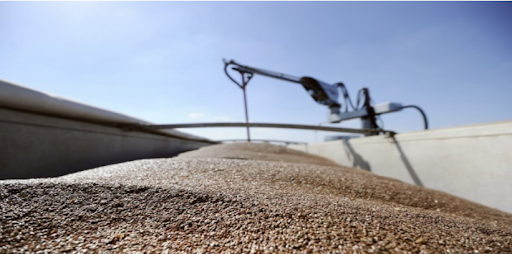Farming Businesses
How to Start Tomato Farming in Nigeria
Is tomato business profitable? Check out capital and materials needed to start in this article.

A lot of people are actually making a lot of cash in tomato farming in Nigeria. This has been possible due to the lucrative nature of the business which has made way for enterprises to thrive. The tomato farming business is not much of stress; rather it is just like other agricultural farming in Nigeria.
If you are interested in starting farming in this aspect, then you are on the right page. Here in this article, we will encapsulate the nitty-gritty of starting a tomato farming business in Nigeria. You will also be encouraged because the spice market in Nigeria is very good for an agribusiness like this.
The guide on how to start a profitable tomato farming in Nigeria. Let us take a deeper look at what’s involved in starting tomato farming in the country;
How to Start Tomato Farming in Nigeria
Here are the steps on how to start tomato farming in Nigeria.
1. Preparation of the Farmland
Before thinking of anything in tomato farming, first, you should settle down for an ideal site for your tomato farming. This is also the initial step you need to take before looking for any other thing. By now you should have the cash at hand, which should be used to purchase the site for the farm.
You should make sure that this farm site is accessible and near to the market. It should also be motor-able by road, in other to have a swift method of shipping your tomatoes when the need arises after harvest is done. Additionally, you should choose good land/soil for your tomato farm.
It is for best productivity to select decent soil for planting your tomatoes in light of the fact that decent and sound soil will decide the sort of tomatoes specie that will be grown. The soil could be a quite sandy and heavy clay loam liberated from a hard pan yet realize that the best tomatoes are acquired from profound, very much depleted soil.
For good produce quantity, guarantee that the soil should be rich in natural matter and it ought to be invested with plant supplements, with a pH worth of 6 to 7.
2. Use the Best Species of Tomato
Nowadays, with improved species of agricultural plants making most of the market, it’s best to go in this way. High-yield tomato variety should be your choice, and avoid going for local species. There are different types of tomato species but the two best species of tomato in Nigeria include:
A. Roma Tomato Specie
For the planting of tomatoes, I will suggest the Roma species of tomato. This kind of tomato is known for its size and redness which will make your farm produce to be good-looking for the market. Also, the Roma specie of tomato can be utilized both for canning and delivering tomato glue or paste.
If you want to get these Roma species here, it may be hard. They are normally found in agric stores in certain nations like the United States. What makes the Roma specie extremely novel is its long time span of usability, its hardback, and low water content which makes it last more after harvest.
Note that a full paint of the Roma specie seeds cost about ₦12,500 or more in the country.
B. Hybrids Tomato Specie
These are tomato seeds that are created through cross-pollinated plants. Typically, these are imported into the country and they may not be easily sourced here. Hybrid tomato seeds are much better than most open-pollinated tomato seeds in Nigeria; they are reared for improvement in disease resistance, color of fruits, uniformity, and yield.
On the whole, a hybrid breed of tomato seeds can increase yield by half – 100% now and again or much more.
3. Setting up your Tomato Nursery
Before you will plant the tomato on your farm, you will first nurse them till they are grown up to the state of transferring them. This should be done around March/April when the downpour is starting in many parts of the country. If you are not going to nurse the tomato seeds yourself, then you can buy them from a dealer in the aspect.
Just as I had explained earlier, tomatoes do very well in most soil types in Nigeria, yet it is best in dark-free loamy soil. Set up the ground by clearing the grasses and rubble, take the soil with a hand scoop, and put them in a container that will contain the nursed plants. Eliminate the seeds from the tomatoes and spread it on the already tile soil.
You can cover it with dry grasses to forestall loss of dampness from the soil and forestall birds and other harmful insects from eating the tomato seeds. Within 5 – 7 days you will see your tomato seeds growing. Stand by for about an additional five days before you remove the dry grasses after the plant had developed a little.
Leave it for another month prior to transferring them to the farm.
4. Transferring the Nursed Tomato Plants
Where you will have to stop in the planting process is actually when you move the nursed tomato plants to the permanent farm. In the event that your farm is too large that you can not do the relocating alone, employ workers that will help you do the work. You should be cautious with delicate plants and try not to break them.
For best results, the process should be carried out with hands. The following step is to plant these nursed tomato plants. You can do this by digging the ground with a piece of little wood, embedding the tomato seedling into the opening, and covering it with loose soil. The tomato plant is delicate and soft, it is best transferred that very day you removed it from the nursery. This is to avoid drying out and weariness of the plant.
5. Weeding and Application of Fertilizers
After a short period of time from planting your tomato plant, let’s say two months, it’s ideal to look out for weeds. While you do the wedding process, ensure that your tomato plants are not harmed and that the weeds are thoroughly eliminated from the whole farm. After the primary weed, it will be an ideal opportunity to apply some manure to help recharge the soil supplements taken by the weeds.
Typically, tomatoes need nitrogen, phosphorus, potassium, potash, calcium, and magnesium, alongside other minor elements. Ensure to apply fertilizers that will supplement any of these elements into the soil. It’s in every case best to have your soil tried to check for supplement levels and pH levels.
In the process of applying fertilizers, it is pertinent to apply those crucial supplements – N-P-K ratio fertilizers can be awesome for tomatoes.
6. Harvesting your Tomatoes Produce
The awesome thing about tomatoes is that they are reaped in a short while. The moment you begin the harvest, you will forge ahead week after week to continue the harvest till the finish of the period. Normally, the tomato plant will continue to produce till the dry season when the plant will cease to exist because of the high temperature of the season.
If you are interested in knowing the time to do the harvest, note that the first one starts within a quarter of a year in the wake of planting. This implies on the off chance that you plan by April, you ought to anticipate that your first harvest should begin by June or July. From that point, it will proceed till November/December.
Using this formula will help you plant your tomatoes well in order to generate a good outcome.
7. Selling your Tomatoes Harvest
If you want to gain fame in this aspect of the agriculture industry, it is critical to set up your promotion strategies. This creation of adverts will reduce the loss in your tomato farming and increase your returns. This includes all marketing and promotion of your produce and farm to intending customers. Here, you will have to search for who or where to supply the tomato produce to.
This is on the grounds that, tomato is a short-lived fruit and can spoil within the snap of a catch. Looking at the market of tomatoes in the country, Lagos alone has more than 15,000,000 million people consuming the fruit practically on a consistent schedule. Along these lines, you can see the potential in venturing into this industry.
Considering this large customer base, there is a need for entrepreneurs to see the chance for a money-spinning business with high returns in this agribusiness. Moreover, the mass market remains the way to achievement in this agribusiness. This is where the cash is located and you need to start viewing it from a business perspective and working to start one.
On the whole, produce more, sell fewer sums, and get more cash flow; that should be the philosophy of your tomato farming business.
Conclusion
In the event that you start a business in tomato farming, you will reap money for the entire season. This is not seasonal agricultural produce that will make you wait for its time of harvest, rather you can get tomatoes at any time of the year. Nonetheless, there is a recurring question posed by a lot of people who want to start tomato farming.
This is ‘How much do I need to start tomato farming? Certainly, if you want to make the best out of this business, you must invest more. The outcome you will get is a function of how much you put into the tomato farming business in Nigeria. The estimated amount you have as capital should be ₦500,000, which is inclusive of the cost of getting the land for your farm.
That is the size of this article on how to start tomato farming in the country. We have expressed deeply the steps involved to get started in this kind of agribusiness.
Recommended:
- How to Start Foodstuff Business in Nigeria
- How to Start Grinding Business in Nigeria
- Top 10 Loans for Non-Salary Earners in Nigeria
- The 10 Richest Farmers in Nigeria
- How to Start Spice Business in Nigeria
📡Join Our Social Media Channels:
Facebook: theinfoWorth
YouTube: Ralph Finance









